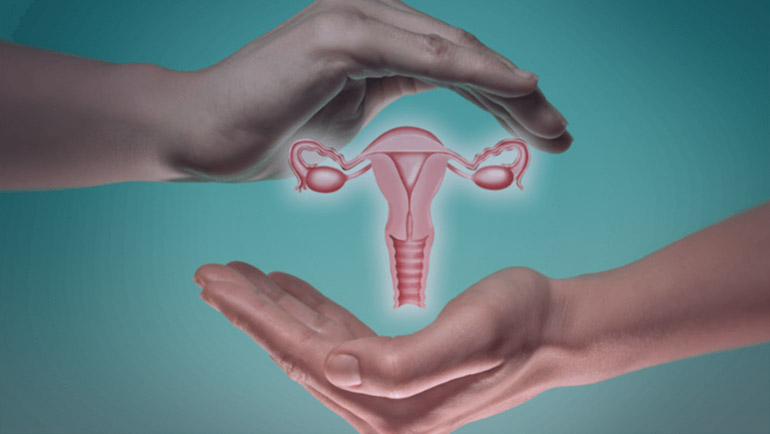Why Mirena?
Its protection rate is almost as high as tubal ligation. Levonorgestrel hormone is also an oral medication.
It is a hormone that has been used for many years in the treatment of uterine diseases and in birth control medications, and its effects are well known. Thanks to advances in technology, it is now possible to apply progesterone hormone directly to the uterine lining to reduce heavy menstrual bleeding.
This means that the side effects associated with oral administration do not occur. The hormone wrapped around the Mirena coil is slowly released into the uterus. This hormone is rapidly absorbed by the uterine tissue. However, systemic side effects are minimal.
Two out of every ten women who visit the gynecology clinic each day do so because of irregular periods and heavy bleeding. Nearly half of these women undergo surgery. Approximately two-thirds of women with irregular bleeding suffer from iron deficiency anemia.
Mirena is frequently used for non-contraceptive purposes to treat common uterine problems such as menstrual pain, excessive menstrual bleeding, prolonged menstrual bleeding, and thickening of the uterine wall (endometrium).
Before Mirena, women with these issues had to undergo surgical procedures such as hysterectomy or endometrial ablation. Mirena is an easy-to-use, successful, and effective treatment method for such conditions.
Mirena has also shown successful results in the treatment of diseases originating in the uterus, such as:
• Myoma,
• Adenomyosis,
• Endometrial Hyperplasia and Endometrial Polyps
In addition to its success in treatment, it can also be used to reduce bleeding.
In conditions unrelated to uterine disease, excessive menstrual bleeding and irregularities may occur. In cases of disorders affecting blood clotting mechanisms (Von Willebrand disease, platelet disorders, coagulation factor deficiencies, women taking excessive anticoagulants, etc.) we use Mirena, a hormonal IUD, as the first-line treatment to reduce bleeding.
We can also administer Mirena treatment to women with fibroids in appropriate cases to reduce bleeding. In essence, Mirena does not eliminate or shrink fibroids. We use it because it has been found to reduce bleeding, and it is successful in most of our patients. In cases where the size of the fibroids is large, the uterus is very large, or there is heavy bleeding, there is a possibility that Mirena may be expelled along with the bleeding.
Mirena can also be used for the treatment of menstrual irregularities in premenopausal women, ovulation disorders, polycystic ovary syndrome, insulin resistance, and for the prevention of endometrial hyperplasia.
Mirena is similar in size and shape to routine copper IUDs and is also very easy to insert into the uterus. Like other intrauterine devices, Mirena is easily inserted into the uterus through the vagina without anesthesia, local or mild sedation.
Compared to other copper IUDs, there is less chance of infection and expulsion from the uterus.
What are the side effects of the Mirena hormonal IUD?
Prolonged bleeding in the form of spotting usually occurs during the first year. After one year, approximately 6 out of 10 women who have Mirena will stop menstruating. When women are informed of this possibility before insertion, those who are bothered by bleeding accept and even prefer the situation created by Mirena. In some women, breast tenderness, fullness, acne, headaches, bloating, and mood swings may occur during the first year of use. These changes do not occur in some women. In women who experience them, they are mild. These problems are temporary, and most women gradually get used to them, and these mild discomforts go away on their own after a while. Therefore, there is no need to remove the Mirena hormonal IUD. The discomfort will resolve on its own within a few months.
Can I have a Mirena hormonal IUD inserted? Who should not use Mirena?
• Those who suffer from migraine and take medication for this condition,
• Those with blood clotting problems, those who use blood thinners during pregnancy,
• Those with active viral liver disease (Hepatitis B, etc.), cirrhosis, liver tumors, or other significant liver disease,
• Those with breast cancer,
• Those with active vaginal infections,
• Those with untreated ovarian, uterine, and cervical cancer,
• Those with AIDS or a high risk of sexually transmitted diseases,
• Those with a history of molar pregnancy (grape pregnancy),
• Those with active postpartum or post-abortion infection (sepsis).
Mirena is a method of birth control that can be used by young women who do not want to take oral contraceptives and want to have lighter and painless periods, and by most women in their 40s to prevent both pregnancy and uterine diseases.


